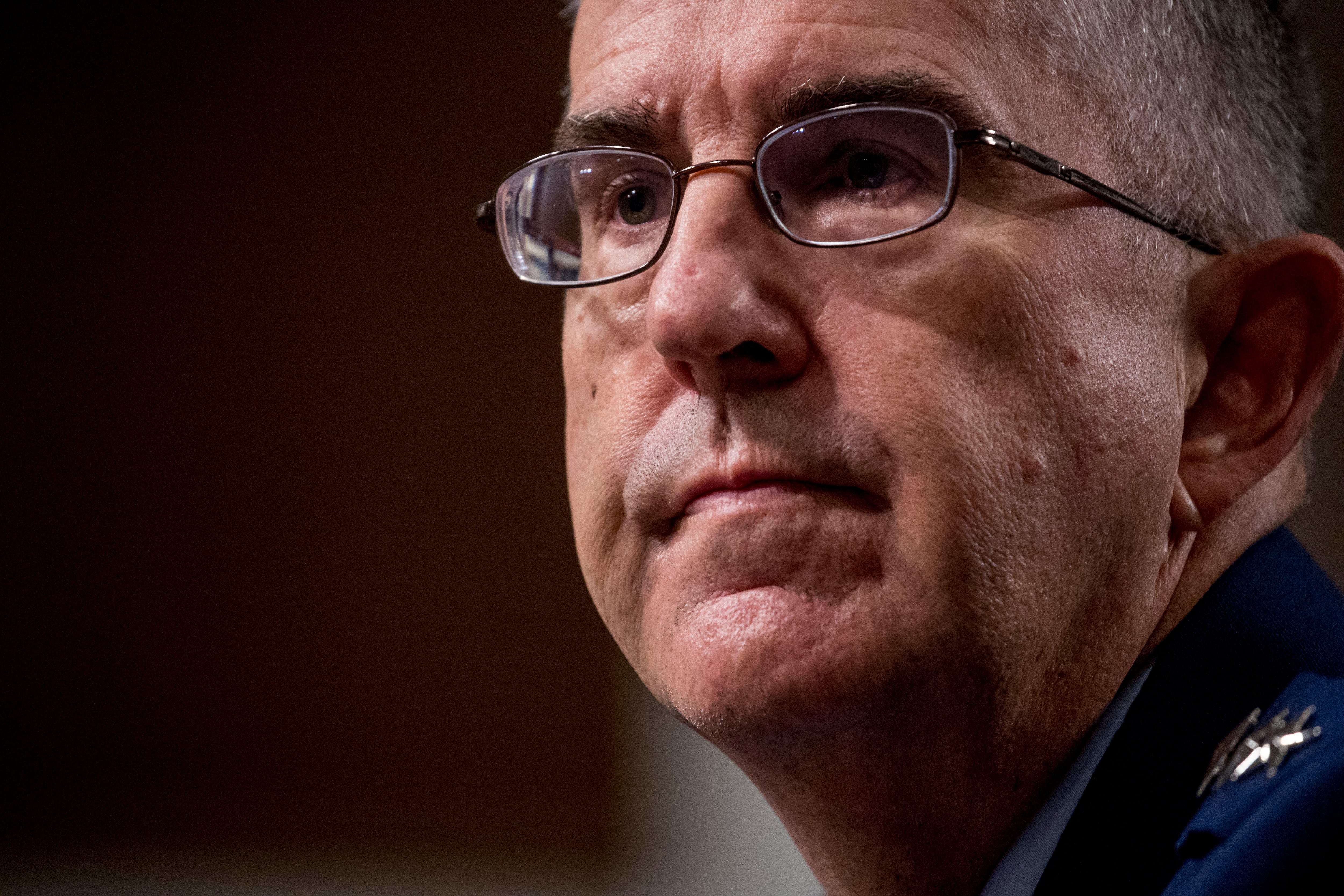As someone who spent 24 years in the Navy, I admire the way in which Adm. Bill Moran — who was scheduled to move up from his position as the vice chief of naval operations (VCNO) to become the 33rd chief of naval operations (CNO) on Aug. 1 — agreed to step aside.
Moran took this unprecedented step because it came to light that he maintained an off-the-record collaboration on high-level Navy business with an officer, Cmdr. Chris Servello, who had been investigated in 2016 over allegations of unsavory behavior toward female junior officers while in uniform. Servello, the current CNO’s former public affairs officer, was removed from his spokesman position with the CNO eight months after the 2016 incident and retired early this year for actions that, while certainly inappropriate, did not rise to the level of criminal sexual behavior.
Since there was nothing inherently unethical in the contents of the communications between Moran and Servello, it is difficult to argue that Moran’s conduct had risen to the level of a firing offense. However, given the problems that the U.S. military and many of our elected and appointed officials currently have with sexual assault and harassment, it made it somewhat difficult for Moran to be as effective as a CNO as he might have been. He deserves some credit and respect for putting the interests of the country and the Navy before his own.
Moran and the Navy’s behavior becomes increasingly admirable when one contrasts it with the way in which the Air Force and Gen. John Hyten — the current head of the U.S. Strategic Command (SAC) who has been nominated to be the vice chair of the Joint Chiefs of Staff — have handled an allegation of sexual assault by Army Col. Kathryn Spletstoser, who served under him at SAC.
RELATED

In April of this year, when Hyten was nominated to become the vice chair of the JCS, Spletstoser, who had been relieved of her duties while serving on Hyten’s staff, claimed that Hyten had made sexually abusive contact with her on more than six occasions going back several years, including an incident in which the general allegedly came to her hotel room and forcibly kissed her.
The Air Force responded to these accusations by launching a probe by its criminal investigative service. After several weeks, the officer in charge of the investigation decided not to press charges against Hyten because the investigation did not uncover evidence to support the allegations made by the colonel. Moreover, the Pentagon, in releasing the report, actually praised him.
But close examination of the allegations makes it clear that there are at least six reasons why the situation is not as cut and dried as the Air Force claims it to be.
First, the investigation found no evidence that Spletstoser was lying. Second, prior to the time of her refusing Hyten’s alleged sexual contacts, the colonel received glowing performance evaluations from Hyten. The general described the colonel as an exceptionally competent and committed leader with the highest level of character, whose ethics are beyond reproach. He also ranked her as the top officer on his staff and recommended her for promotion to general. Since the staff of SAC — one of the nation’s most critical and important commands — is composed of the best and the brightest military people, this is quite an accomplishment.
Third, not only did Hyten not step aside during the investigation, but the investigation was headed by an officer who was junior to him and who never insisted on a lie detector test. Fourth, the colonel did not report the incidents when they occurred because she believed that Hyten would retire after his tenure at SAC ended. But when he was nominated to the second most important position in the U.S. military, vice chair of the JCS — a post that could extend for another four years — she was concerned that he might engage in this type of behavior again, so she came forward. Fifth, Spletstoser has offered to testify at Hyten’s confirmation hearing and to take a lie detector test. Spletstoser, a 28 year Army veteran who has had two combat tours in Iraq and another two in Afghanistan, has nothing to gain by making this accusation now. She has already had a successful career, attained a very high rank and was planning to retire.
Finally, the Army concluded that the Air Force had compelled her to retire and transferred her from SAC to the Pentagon.
While the colonel’s claims can never be decisively substantiated or disproved, as was evident during Hyten’s confirmation hearings, a cloud will hang over his head even if he is confirmed as the vice chair. Moreover, given the military’s dismal track record with the way it has handled cases of sexual assault, this will not send the appropriate message to the troops. This situation is much more serious than that of which Admiral Moran was accused.
For the good of the country, the military, and the Air Force, General Hyten should step aside.
Lawrence Korb is a senior fellow at the Center for American Progress and served as assistant secretary of defense under President Ronald Reagan.





